-
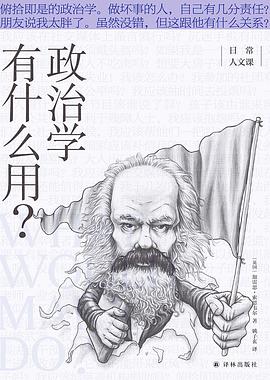
政治学有什么用?
这是一本人人能读的实用政治学手册。
40个直击生活痛点的问题,涵盖自由、平等、权威、公正和权利的方方面面。
109位政治学巨擘,犀利点出日常情景所隐含的政治学内涵。
本书能令你跳出庸常思维,像政治学家一样思考。
—————————————————
苏格拉底曾说过:“未经反思的人生不值得过。”
“日常人文课”想告诉你:人生无处不反思!哪怕是柴米油盐的日常疑惑,也能从古往今来的人文大师那里得到靠谱的解答和接地气的建议。哲学会帮助你升华灵魂。政治学会教你解读世界和社会格局。女性主义能让你看穿无处不在的性别歧视。经济学会赋予你理性经济人的思维模式。心理分析会使你更好地认识你自己。
翻开这套书,你将学会过一种经过反思的生活。
—————————————————
读者一旦读了这本书,一定会明显增进自己的政治学知识。政治学不在远处,就在身边。这就是本书不可忽视的价值所在。
——清华大学政治学系长聘教授 任剑涛
-
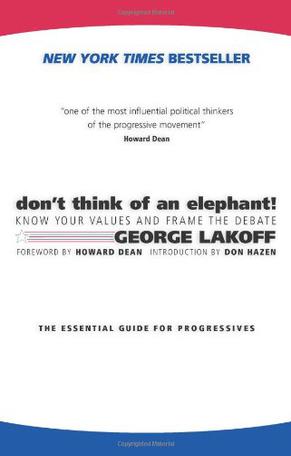
Don't Think of an Elephant!
-
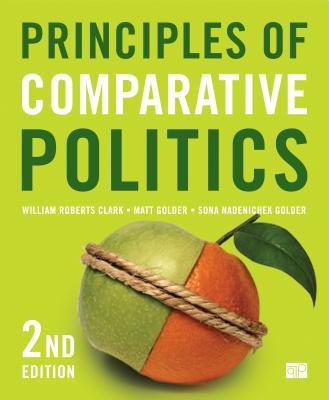
Principles of Comparative Politics
-
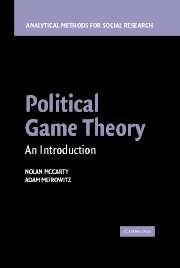
Political Game Theory
Political Game Theory is a self-contained introduction to game theory and its applications to political science. The book presents choice theory, social choice theory, static and dynamic games of complete information, static and dynamic games of incomplete information, repeated games, bargaining theory, mechanism design and a mathematical appendix covering, logic, real analysis, calculus and probability theory. The methods employed have many applications in various disciplines including comparative politics, international relations and American politics. Political Game Theory is tailored to students without extensive backgrounds in mathematics, and traditional economics, however there are also many special sections that present technical material that will appeal to more advanced students. A large number of exercises are also provided to practice the skills and techniques discussed. Contents 1. Introduction; 2. The theory of choice; 3. Choice under uncertainty; 4. Social choice theory; 5. Games in the normal form; 6. Bayesian games in the normal form; 7. Extensive form games; 8. Dynamic games of incomplete information; 9. Repeated games; 10. Bargaining theory; 11. Mechanism design and agency theory; 12. Mathematical appendix. -
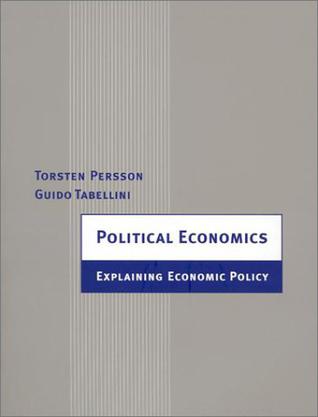
Political Economics
What determines the size and form of redistributive programs, the extent and type of public goods provision, the burden of taxation across alternative tax bases, the size of government deficits, and the stance of monetary policy during the course of business and electoral cycles? A large and rapidly growing literature in political economics attempts to answer these questions. But so far there is little consensus on the answers and disagreement on the appropriate mode of analysis.Combining the best of three separate traditions--the theory of macroeconomic policy, public choice, and rational choice in political science--Torsten Persson and Guido Tabellini suggest a unified approach to the field. As in modern macroeconomics, individual citizens behave rationally, their preferences over economic outcomes inducing preferences over policy. As in public choice, the delegation of policy decisions to elected representatives may give rise to agency problems between voters and politicians. And, as in rational choice, political institutions shape the procedures for setting policy and electing politicians. The authors outline a common method of analysis, establish several new results, and identify the main outstanding problems. -
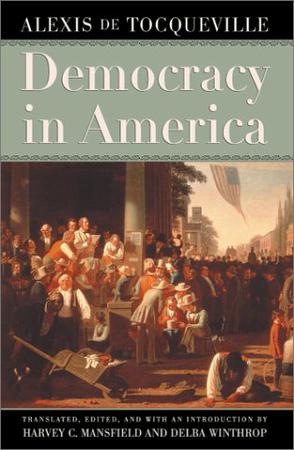
Democracy in America
Alexis de Tocqueville (1805-59) came to America in 1831 to see what a great republic was like. What struck him most was the country's equality of conditions, its democracy. The book he wrote on his return to France, Democracy in America, is both the best ever written on democracy and the best ever written on America. It remains the most often quoted book about the United States, not only because it has something to interest and please everyone, but also because it has something to teach everyone. When it was published in 2000, Harvey Mansfield and Delba Winthrop's new translation of Democracy in America—only the third since the original two-volume work was published in 1835 and 1840—was lauded in all quarters as the finest and most definitive edition of Tocqueville's classic thus far. Mansfield and Winthrop have restored the nuances of Tocqueville's language, with the expressed goal "to convey Tocqueville's thought as he held it rather than to restate it in comparable terms of today." The result is a translation with minimal interpretation, but with impeccable annotations of unfamiliar references and a masterful introduction placing the work and its author in the broader contexts of political philosophy and statesmanship.